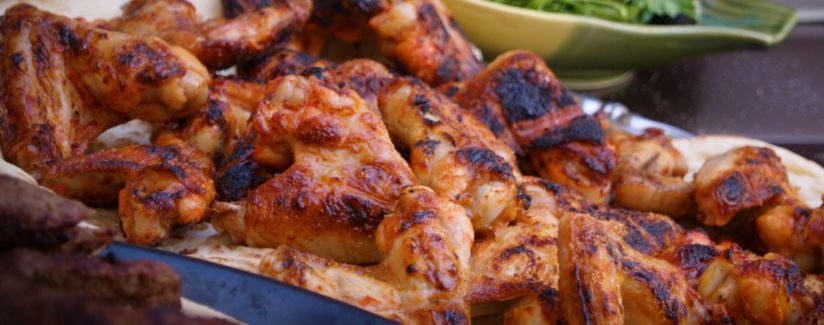
Are There Risks to Eating Charred Meat?
The aroma of grilled food evokes fond thoughts of summer days with no schedule in sight.
However, can grilling food at such a high heat be safe? There’s been some concern about compounds that are formed when meat is grilled. These compounds are called heterocyclic amines – say that five times fast! – or HCAs for short.
We asked Dr. Raymond Thomas, associate professor at Memorial University, an expert in grilled food nutritional quality and safety, to clue us in on the dangers of HCAs and provide tips and tricks to reduce their presence in grilled meats.
What exactly are HCAs? How are they formed in grilled meat?
Dr. Thomas: “Heterocyclic amines (HCAs) are a type of nitrogen-containing compound formed while cooking protein-rich foods, such as meat. The chemical structure of HCAs includes ring-like structures called heterocyclic rings, and nitrogen-containing compounds, called amines. They were first discovered from smoke condensation. Following their discovery, studies found that higher levels of these HCAs were present in the charred parts of broiled or grilled meat (beef, pork, lamb and chicken) and fish. HCAs are also formed during normal cooking of processed meat products.”
“HCAs can be formed from the reaction of amino acids (the building blocks of protein), creatine (a compound found in living tissue), creatinine (a breakdown product of creatine) and hexoses (various forms of simple sugars) during conventional cooking, such as in an oven, at temperatures around 150-300 ᵒC. HCAs can also be formed by the reaction of amino acids and proteins at temperatures above 300 ᵒC cooking temperatures.”
When I’m cooking food at home is there anything that influences the level of HCAs in my food?
Dr. Thomas: “The formation of HCAs, the type of HCAs formed, as well as the amount of HCA formed while cooking meat is influenced by a number of factors. The most important factors include: cooking temperature, cooking time, cooking method (dry vs wet), type of meat, type of meat cut, acidity of meat, fat content of the meat, types of amino acids that make up the protein content in the meat and the presence of sugars in the meat.”
When I consume HCAs what are the health risks?
Dr. Thomas: “HCAs are known carcinogens (cancer-causing compounds) and mutagens (mutation causing compounds). Studies in rats and mice have shown that cancers can develop from being exposed to HCAs. These include cancers of the colon, liver, mouth, lung, skin, small intestine, blood vessels and urinary bladder.”
“Studies have also shown that consuming HCAs through eating red meat could increase the risk of developing colorectal, stomach, lung, pancreas, mammary and prostate cancers in humans.”
Right now, there are studies going on at Memorial University that are looking at strategies to decrease the formation of HCAs in grilled meat.
Is there anything I can do at home to reduce these health risks?
Dr. Thomas: “Yes, there is a lot that you can do at home! Since the cooking temperature, time and method are important factors influencing HCA formation, you should avoid overcooking meat and, if possible, use cooking methods such as steaming or boiling as opposed to grilling, roasting, frying or broiling. Grilling, roasting, frying or broiling exposes food to much higher temperatures and under drier conditions, which are known to increase HCA development.
“Another way to reduce HCA formation in food is to treat foods with natural antioxidants before and after cooking. This includes marinating with herbs, spices, unfiltered beers, wines and mixtures (sauces). Marinating with these ingredients has been shown to be an excellent strategy for reducing HCA development and consumption, as well as the potential cancer health risks. So, marinating meat adds additional flavours to cooked meat and also reduces your exposure to HCAs formed during cooking – a win-win I would say.”
Grilling and other methods that cook meat at high temperatures can lead to the creation of heterocyclic amines (HCAs) a type of nitrogen-containing compound that has been linked to certain types of cancer. Marinating meat prior to grilling reduces the development of HCAs.


























